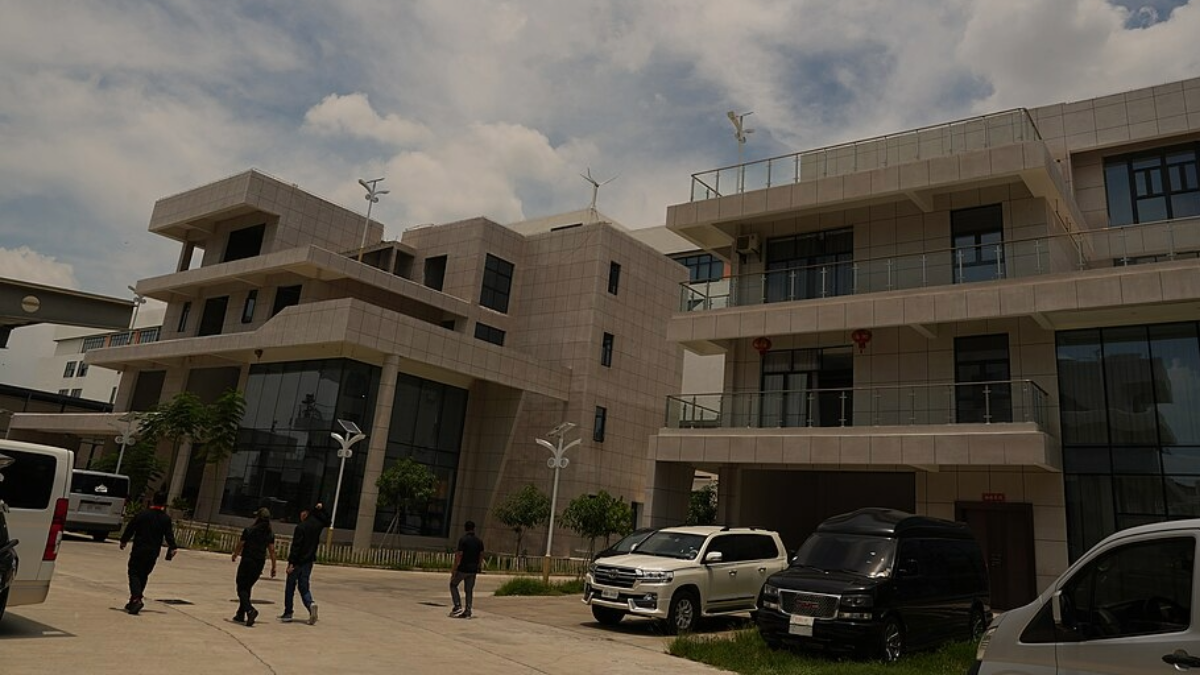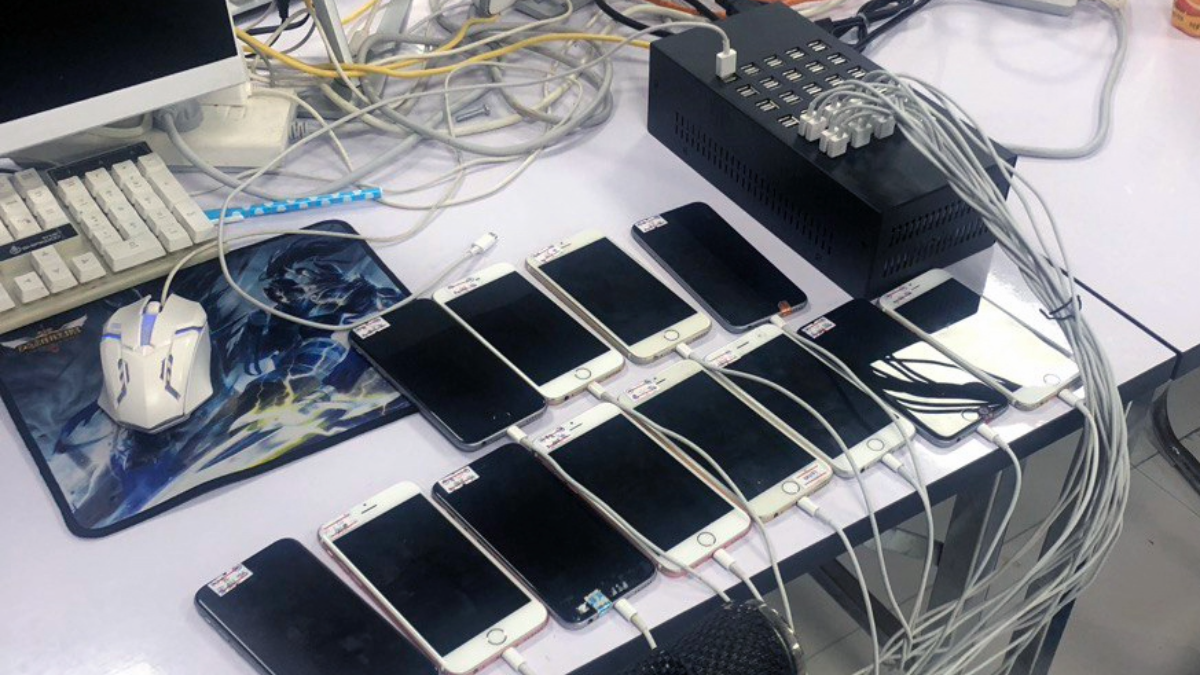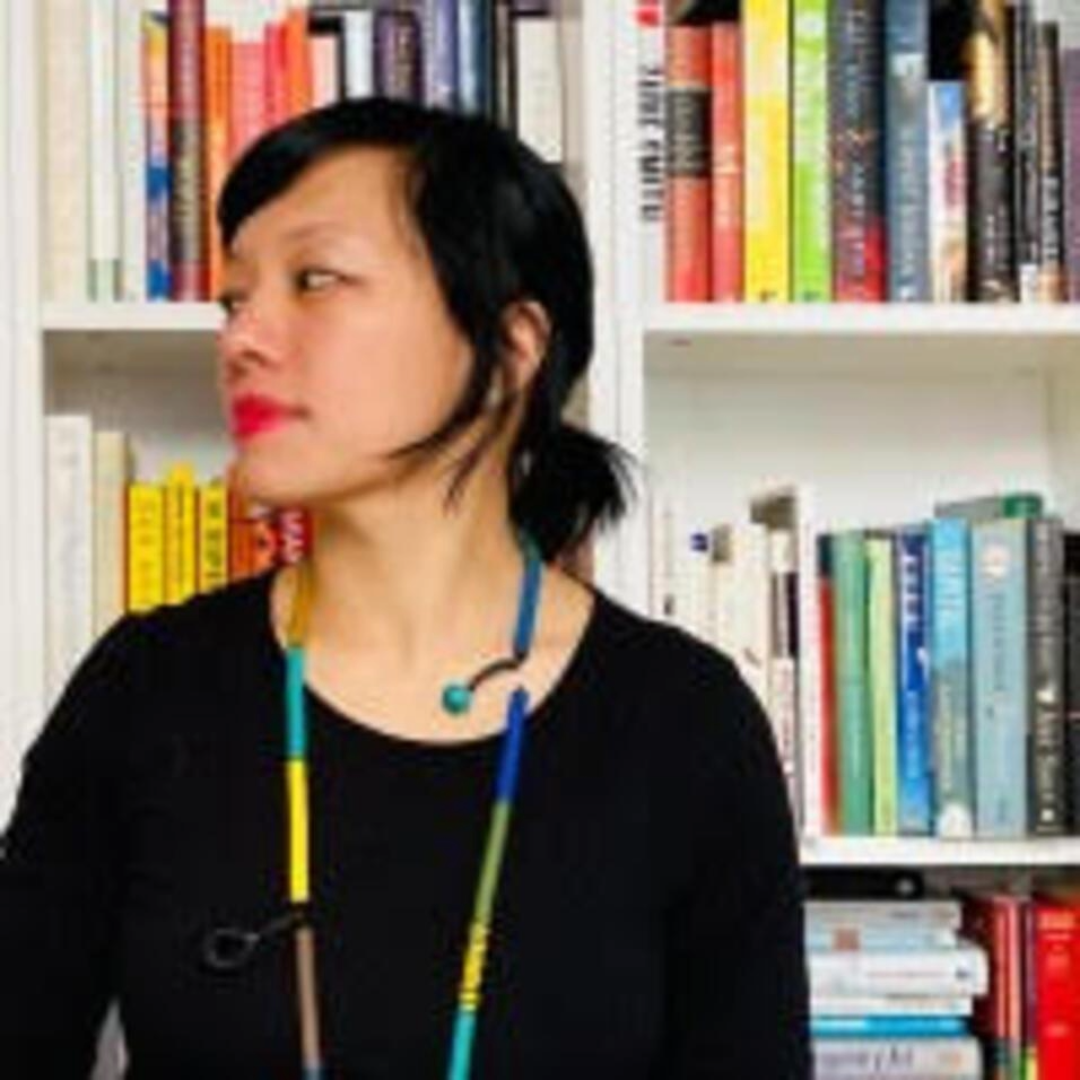As Authorities Crack Down on Scam Compounds, Victims Are Getting Left Behind
Laura Scherling / Nov 17, 2025
A raided scam compound in Bamban, to the north of the capital of the Philippines, Manila. (United Nations Office on Drugs and Crime)
Days before the biannual ASEAN Summit in Kuala Lumpur last month, Myanmar’s ruling military junta announced it had raided the notorious scam center known as KK Park. The army declared they had confiscated 30 of Elon Musk’s Starlink satellite internet terminals and released some 2,000 workers, this despite later reports that parts of the compound were still operating. KK Park is an industrial size cybercrime operation where tens of thousands of workers have been trafficked, held captive and forced to defraud individuals around the world through cyber crimes like romance scams and fake crypto investments. According to The Irrawaddy, a publication by Thailand-based Burmese exiles, the raid may have been motivated by pressure from Interpol and United States President Donald Trump’s attendance at the ASEAN Summit.
The recent crackdown reveals an increasingly chaotic situation that has drawn in Myanmar militias, crime groups from throughout Asia and “copycats” seeking to capitalize on a growing scam market, while leaving scam compound survivors with incomplete support.
A recent transnational crackdown on scam compounds is taking place in Southeast Asia, where many are located across Myanmar, Laos and Cambodia. In early September, the US Department of the Treasury’s Office of Foreign Assets Control (OFAC) unveiled sanctions against networks of scam centers across Southeast Asia. “Southeast Asia’s cyber scam industry not only threatens the well-being and financial security of Americans, but also subjects thousands of people to modern slavery,” Under Secretary of the Treasury for Terrorism and Financial Intelligence John K. Hurley said in a statement.
In late September, a Chinese court sentenced 11 members of a mafia family who ran Myanmar scam centers to death, sending the message that they will, as the BBC put it, “deal harshly with the scam business on its border.”
Lauren Dwyer, vice president of business operations at SpaceX, announced on October 21 that “2,500 Starlink Kits in the vicinity of suspected ‘scam centers’” had been disabled in Myanmar.
On October 14, the US and the United Kingdom had rolled out sanctions on 146 targets within the Cambodia-based Prince Group, a criminal empire that has led investment scams targeting Americans and other victims globally. On the same day, an indictment against the head of the Prince Group was unsealed in New York, along with a civil forfeiture complaint against 15 billion dollars in Bitcoin, the largest forfeiture action ever made by the US Department of Justice.
Still, “[t]hese actions will probably not dent the profits of an industry that brings in about $64 billion each year,” Jason Tower, a senior expert with the Global Initiative Against Transnational Organized Crime (GI-TOC) and former country director for the USIP Burma program, told The New York Times. On November 12, U.S. Attorney Jeanine Ferris Pirro, announced the creation of the District of Columbia “Scam Center Strike Force” to combat rising “Southeast Asian cryptocurrency-related fraud and scams”.
The United Nations estimated that at “least 120,000 people across Myanmar and around 100,000 in Cambodia may be trapped in scam operations.” Furthermore, scammers are increasingly mobile, making it challenging to estimate the size of scam operations. The Global Initiative Against Transnational Organized Crime (GI-TOC) noted that crime syndicates have adapted to law enforcement by concealing their operations with temporary closures, relocating at night and “fragmenting into smaller units.” Outside of Southeast Asia, the ground zero of scam compounds, criminal groups have been detected running scam compounds in Africa, South Asia, the Middle East and select Pacific islands.
Coordinated crackdowns between China, Thailand and Myanmar saw thousands of scam compound trafficking victims rescued in February, yet left thousands more awaiting repatriation. The task of verifying survivors’ identities is tedious, and it can be a long wait for home governments to, as one expert put it, take “responsibility for their citizens.” Survivors come from many nationalities across China, India, the Philippines, Ethiopia, Kenya and throughout Southeast Asia. Although only a fraction of these hundreds of thousands of trafficked workers are freed, those who manage to get out are finding themselves helpless. Some have found themselves stuck in makeshift camps at the Myanmar border.
Mike, an Ethiopian survivor who has suffered panic attacks while waiting to be repatriated, recounted working long hours to defraud people and being regularly beaten by his captors in a BBC interview. Some survivors have nothing at all — not the wages promised by the crime syndicates nor even their passports, which are often withheld by compound bosses, making identity verification even more difficult.
Like other survivors, after “Neo” was freed from the Dongmei Zone (a compound in Myawaddy, Myanmar) he faced a new set of challenges: getting out of a foreign country and finding somewhere safe to go. Neo’s kidnapping and forced imprisonment was featured in the New York Times article, “7 Months Inside an Online Scam Labor Camp.” Neo secretly collected financial data, photos and videos about his imprisonment, where he was forced to work as the cartel’s accountant and reportedly tracked millions of dollars in illicit income. Eventually Neo’s family was sent a ransom video, and the Chinese police introduced his family to a businessman who brokered Neo’s release.

Inside the Dongmei Zone scam compound. (Photo courtesy of Neo)
As he recounted in a separate interview with me, after Neo’s release, the cartel refused to give back his passport. “Without the proper identifications, nor a valid visa, I would be, again, stopped by the police and sent to the jail,” he said. In Thailand, overstaying a visa longer than 90 days can have serious penalties. Instead, Neo pretended to be a lost tourist and was able to get a travel document from the Chinese Embassy. “I was allowed to pay my overstaying fine, which was around 20,000 baht at that time,” said Neo. That’s about $619 dollars, a considerable burden for human trafficking victims who may lack all basic necessities like identification, money, shelter and social services. Trafficking victims without any legal status at all, those who cannot be identified, may be placed in immigration detention centers.
The question of who is legally considered a human trafficking victim is also dependent on a specific country’s legislation. In 2000, the UN Protocol to Prevent, Suppress, and Punish Trafficking in Persons became one of the first legal instruments to create an internationally-recognized definition: trafficked persons are those who are recruited, transferred and harbored by “means of threat or use of force.” According to a 2024 UN Office on Drugs and Crime report, the number of human trafficking victims increased sharply through the pandemic.
For Neo and other survivors, counter-trafficking measures are insufficient.
After returning to China, Neo met with police forces where he spoke to anti-scam special forces, but observed, “Nobody talked about recognition of human trafficking victims.” A US Department of State report on human trafficking in Thailand (where many survivors currently end up) outlined that the country does not “fully meet the minimum standards for the elimination of trafficking,” but they have seen increases in investigations and the establishment of 13 victim identification centers. The State Department also reported that Thailand had “inconsistent and ineffective interviewing practices during labor inspections and victim identification interviews” which leaves “many trafficking victims unidentified and without care.”
The question of getting support for survivors in Thailand is a slippery slope. US foreign aid cuts have reduced shelter services and NGO funding, while organizations like the Catholic charity Caritas and Global Alms are lifelines for survivors. Global Alms maintains a victim helpline, an emergency response team and does preliminary identification of trafficking victims for Thailand’s National Referral Mechanism (NRM). Ideally, a victim can gain support through NRM and then enter a temporary protection center. Later on, victims are repatriated, however wait times are vastly different, depending on whether NRM can be handled efficiently and the responsiveness of the victim’s home country. But not all victims feel safe in their home country.
After a short period home back in China, Neo felt unsafe and began searching to go abroad. He briefly traveled to Guyana, before seeking asylum in Europe. This was a positive outcome for Neo, as asylum seekers have increasingly faced fewer pathways to safety.
The US has capped its admission of refugees to 7,500 annually. The European Union has also implemented a “stricter interpretation of protection needs” and has put more refugee applications on hold. Neo is currently looking at new work opportunities and regularly checks in with his lawyer and immigration offices. While the future feels uncertain, he feels strongly about being more public about his circumstances. “I was trafficked into a compound. I think the best way to stay safe is to tell my story.”
Still, Neo is concerned that law enforcement is not doing everything they can to fight scam compounds and the cartels that run them. Many organizations and experts agree. GI-TOC, a network of civil society actors working against organized crime, described that the relationship between organized crime and corruption is challenging to break, especially when malicious actors hold “positions in business, politics and crime simultaneously.” Jay Kritiya of the Civil Society Network told ABC News, “If we only rescue the victims, and don’t arrest anybody, especially the Chinese mafia and those transnational syndicates, then there will be no point.”
Authors
